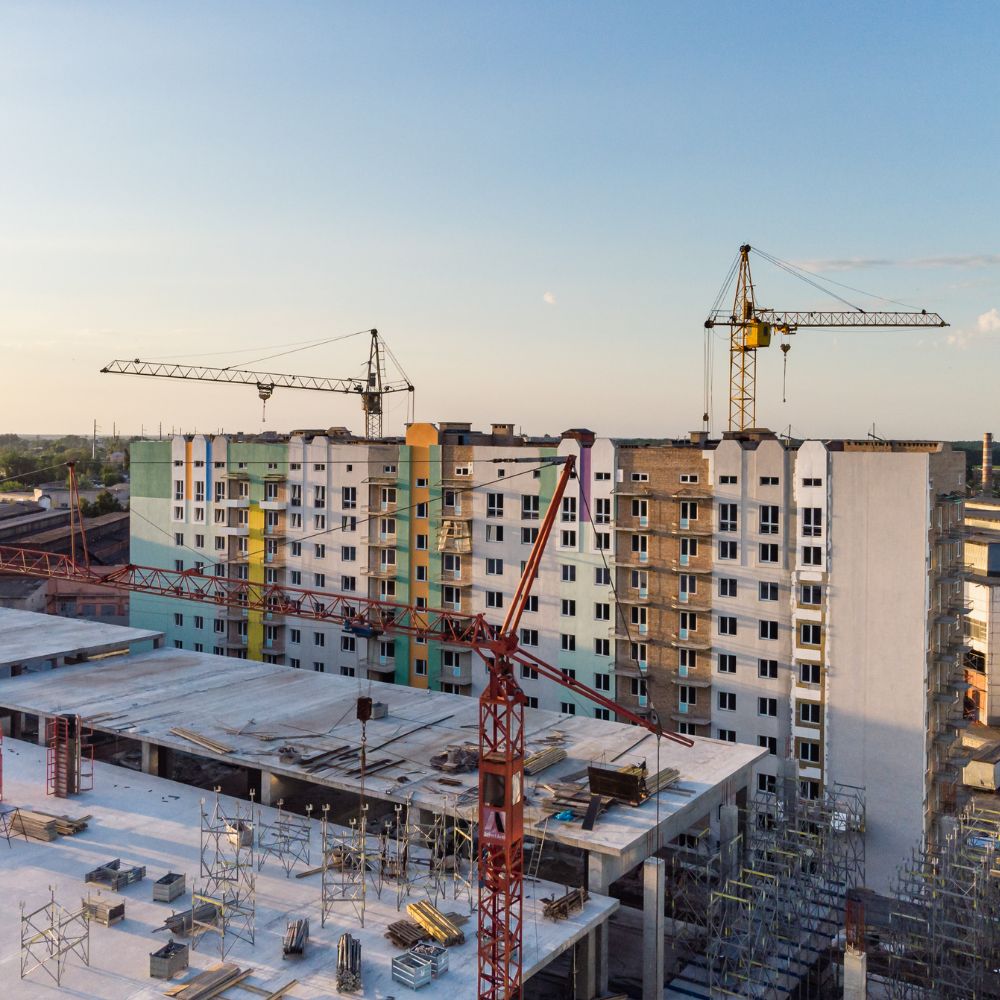Property development and management play a crucial role in the real estate industry. Whether you are a seasoned investor or just starting out, understanding the ins and outs of this field is essential for success. In this article, we will delve into the secrets of property development and management, shedding light on what it entails and how to excel in this dynamic industry.
The Role of Property Developers and Managers
Property developers are the visionaries who identify opportunities and initiate projects, while property managers are responsible for the day-to-day operations and maintenance of properties. Developers oversee the entire lifecycle of a project, from site acquisition and design to construction and sales. On the other hand, property managers ensure that properties are well-maintained, tenants are satisfied, and rental income is maximized.
Successful property developers possess a diverse skill set, including financial analysis, risk assessment, negotiation, and project management. They must also have a keen eye for market trends and an ability to identify lucrative investment opportunities. Property managers, on the other hand, require strong communication and organizational skills, as well as knowledge of legal and regulatory requirements.
Benefits of Property Development and Management
Engaging in property development and management offers numerous benefits. For developers, it provides an opportunity to create value, generate substantial profits, and leave a lasting impact on the built environment. It allows them to capitalize on market trends, leverage their creativity, and contribute to urban development.
Property management offers a steady stream of income through rental properties. It provides a sense of stability and financial security, as well as the potential for long-term wealth accumulation. Additionally, property managers have the opportunity to interact with a diverse range of tenants and build lasting relationships.

Steps to Successful Property Development
Achieving success in property development requires careful planning and execution. Here are the key steps to follow:
Market Research and Analysis: Conduct thorough market research to identify areas with high growth potential, analyze market trends, and assess demand and competition. This will help you make informed decisions about property location, design, and pricing.
Feasibility Study: Assess the financial viability of your project by estimating costs, revenue, and potential returns. Consider factors such as land acquisition, construction costs, financing, and sales projections. A comprehensive feasibility study will guide your decision-making and ensure profitability.
Securing Financing: Once you have a solid business plan and feasibility study, secure financing for your project. Explore various funding options, such as bank loans, private equity, or joint ventures. Present your project with a compelling case to potential investors or lenders.
Design and Development: Engage architects, engineers, and contractors to design and develop your property. Ensure compliance with local regulations and obtain the necessary permits. Supervise construction activities to ensure quality and timely completion.
Marketing and Sales: Develop an effective marketing and sales strategy to attract potential buyers or tenants. Utilize various channels, such as online listings, social media, and partnerships with real estate agents. Showcase the unique features and benefits of your property to differentiate it from competitors.
Project Management: Oversee the entire development process, ensuring that timelines are met, budgets are adhered to, and quality standards are maintained. Regularly communicate with stakeholders and address any issues or risks that arise.
Completion and Handover: Once construction is complete, conduct a thorough inspection to ensure everything is in order. Make necessary repairs or improvements before handing over the property to buyers or tenants. Provide exceptional customer service and support during the handover process.
By following these steps diligently, you can increase the likelihood of a successful property development venture.
Key Factors to Consider in Property Management
Effective property management is crucial for maximizing returns and maintaining long-term value. Consider the following key factors:
Tenant Selection and Retention: Selecting the right tenants is essential for minimizing vacancies and ensuring steady rental income. Conduct thorough background checks, verify references, and assess their financial stability. Provide exceptional customer service to retain tenants and address their concerns promptly.
Property Maintenance and Upkeep: Regularly inspect and maintain your properties to ensure they remain in optimal condition. Promptly address repairs, conduct preventative maintenance, and upgrade amenities when necessary. Well-maintained properties attract quality tenants and command higher rental rates.
Legal and Regulatory Compliance: Stay updated on local laws and regulations governing rental properties. Ensure compliance with safety codes, zoning regulations, and tenant rights. This will help you avoid legal issues and potential liabilities.
Communication and Relationship Building: Foster open and transparent communication with tenants, addressing their concerns and inquiries promptly. Build positive relationships with tenants, vendors, and stakeholders to create a harmonious living environment and enhance your reputation.
By focusing on these key factors, you can effectively manage your properties and ensure long-term success in the real estate industry.
Challenges in the Real Estate Industry
While property development and management offer substantial rewards, they also come with their fair share of challenges. Some of the common challenges faced by professionals in the real estate industry include:
Market Volatility: The real estate market is influenced by various factors, such as economic conditions, government policies, and interest rates. Market fluctuations can impact property values, demand, and sales, requiring developers and managers to adapt to changing circumstances.
Regulatory Changes: Laws and regulations governing the real estate industry can change over time. Developers and managers must stay informed and compliant with new regulations, which may impact project timelines, costs, and profitability.
Competition: The real estate industry is highly competitive, with numerous developers and property managers vying for the same market. Standing out from the competition requires innovative strategies, unique value propositions, and exceptional customer service.
Financing and Capital: Accessing financing for property development projects can be challenging, particularly for new developers. Securing capital and managing cash flow are crucial for successful project execution.
Tenant Relations: Dealing with difficult tenants, resolving disputes, and managing tenant turnover can be demanding. Effective communication and conflict resolution skills are essential for maintaining positive tenant relationships.
Despite these challenges, the real estate industry remains a lucrative field for those who are willing to navigate the complexities and adapt to changing market conditions.

Effective Marketing and Sales Strategies in Real Estate
Marketing and sales are crucial components of successful property development. Here are some effective strategies to consider:
Targeted Marketing: Identify your target audience and tailor your marketing efforts to reach them effectively. Utilize online platforms, social media, and traditional marketing channels to raise awareness about your properties.
Compelling Branding: Develop a strong brand identity that resonates with your target audience. Create a compelling brand story, logo, and visual elements that differentiate your properties from competitors.
Professional Photography and Virtual Tours: Invest in professional photography and virtual tours to showcase the unique features and benefits of your properties. High-quality visuals attract potential buyers or tenants and increase engagement.
Partnerships and Referrals: Collaborate with real estate agents, brokers, and industry professionals to expand your network and reach a wider audience. Offer referral incentives to encourage word-of-mouth marketing.
Open Houses and Showrooms: Organize open houses and showrooms to provide potential buyers or tenants with an opportunity to experience your properties firsthand. Offer incentives, such as exclusive discounts or limited-time offers, to stimulate interest and urgency.
Online Presence: Maintain a strong online presence through a user-friendly website, active social media accounts, and online property listings. Regularly update content, respond to inquiries promptly, and engage with your audience to build credibility and trust.
Customer Relationship Management: Implement a customer relationship management (CRM) system to track leads, manage customer interactions, and nurture relationships. Follow up with potential buyers or tenants, addressing their queries and providing personalized assistance.
By implementing these marketing and sales strategies, you can effectively showcase your properties and attract potential buyers or tenants.
The Future of Property Development and Management
The real estate industry is constantly evolving, driven by technological advancements, changing demographics, and urbanization. Here are some key trends that will shape the future of property development and management:
Sustainable and Green Buildings: Increasing environmental concerns are driving the demand for sustainable and energy-efficient buildings. Developers and managers will need to incorporate green technologies, such as solar panels and smart home systems, to meet the expectations of environmentally conscious buyers or tenants.
Technology Integration: Technology will play a significant role in property development and management. Artificial intelligence, virtual reality, and blockchain are revolutionizing processes, such as property searches, tenant screening, and payment systems.
Mixed-Use Developments: The demand for mixed-use developments, which combine residential, commercial, and recreational spaces, is on the rise. Developers will need to create vibrant, multi-functional communities that offer convenience and a high quality of life.
Co-living and Co-working Spaces: The sharing economy has influenced the way people live and work. Developers and managers will need to adapt to the growing demand for co-living and co-working spaces, providing flexible and collaborative environments.
Smart Cities: The concept of smart cities, where technology is integrated into urban infrastructure, will shape the future of property development. Developers and managers will need to embrace smart technologies, such as IoT sensors and data analytics, to enhance efficiency and improve the overall living experience.
Conclusion
Property development and management are multifaceted fields that require a deep understanding of the real estate industry, strong business acumen, and a commitment to excellence. By following the steps to successful property development, considering key factors in property management, and implementing effective marketing and sales strategies, you can unlock the secrets to success in this dynamic industry.


Contact us